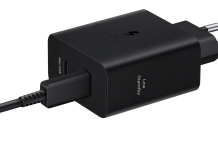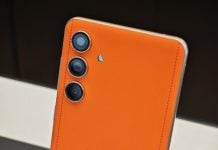Samsung has announced that it has become the world’s first to demonstrate the MRAM (Magnetoresistive Random Access Memory) technology for in-memory computing. The company’s paper for the same titled ‘A crossbar array of magnetoresistive memory devices for in-memory computing’ was published by Nature (via SamMobile).
Data is usually stored in DRAM for quick access for the CPU. MRAM changes things though and combines data storage and computing, letting both happen on the same chip. Operations are theoretically much faster in such a case as there is no need to transfer data from memory to processor and vice versa.

Moreover, there are significant power savings since data processing happens in a highly parallel manner inside the memory.
The demonstration is a breakthrough because while other in-memory computing solutions like PRAM and RRAM have been demoed, working MRAM has been quite difficult to achieve, mainly due to its low resistance. It was also impossible to use MRAM’s power efficiency advantage in a standard in-memory computing architecture.
Samsung has made MRAM possible thanks to a self-developed MRAM array chip that uses ‘Resistance Sum’ instead of the standard ‘Current-Sum,’ which counters the resistance problem.
The solution was tested by running AI applications, and it offered 98% accuracy in the classification of handwritten digits and 93% accuracy in detecting faces in images. Samsung says that MRAM tech can be used for AI processing and to make highly power-efficient AI chips.
Dr. Seungchul Jung, the first author of the paper, said, “In-memory computing draws similarity to the brain in the sense that in the brain, computing also occurs within the network of biological memories, or synapses, the points where neurons touch one another. In fact, while the computing performed by our MRAM network, for now, has a different purpose from the computing performed by the brain, such solid-state memory network may in the future be used as a platform to mimic the brain by modeling the brain’s synapse connectivity.”
RELATED:
- Samsung accidentally reveals Galaxy Tab S8 Ultra on its support page
- Samsung Galaxy A33 5G charging capabilities emerge through FCC certification
- Samsung Galaxy S22 Ultra Exynos 2200 variant’s AnTuTu, Geekbench scores revealed
- Samsung Galaxy S10 5G gets Android 12 based One UI 4 update in the US and Korea
- Samsung Galaxy S22 series with Exynos chips spotted on European listings







